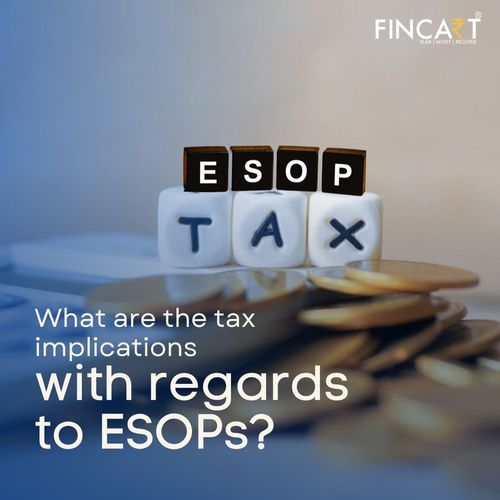Table of Contents
ToggleAs we discussed in the previous blogs, ESOPs are one of the strategies to retain its best employees. This option is often given to employees when the company is moving up the growth ladder.
The primary purpose of an ESOP is to enable employees to become partial owners of the company. This ownership interest can be in the form of shares of stock or stock options. ESOPs are intended to motivate employees, foster a sense of loyalty and commitment, and encourage them to work toward the company’s long-term success.
ESOPs provide several benefits to employees. Firstly, they offer a retirement savings vehicle, as employees accumulate shares in the company over time. Secondly, ESOPs can be a tax-advantaged form of compensation, as the contributions made by the company to the ESOP are tax-deductible. Lastly, ESOPs offer the potential for capital appreciation if the company’s stock value increases over time.
An organization’s road map will determine the number of shares, the vesting period, and the exercise price at which employees can buy shares. Even within the same company, exercise prices can vary. It is for this reason that the company may award ESOPs to a variety of individuals with different goals.
How exactly does an ESOP work?
For example – Let’s say you join a company in 2018 and your employer offered 2020 you 10,000 ESOP shares at a predetermined price of Rs 100 per share when you complete 2 years in the company.
Hence, if you stay with the company for two years, i.e., until 2024, and if the share price is Rs 1000, you can purchase up to 10,000 shares at an earlier committed price of Rs 100 irrespective of market conditions.
As a result, you make a nice profit of Rs 900 per share over the market price. You will thus, end up accumulating a wealth of 90 lakhs.
In general, ESOP vesting occurs in tranches or blocks. After one year, you get 25% of allotted shares, then another 25% after the second year, and then 60 percent after the third.
ESOPs and taxes: what’s the deal?
Taxation is one of the most critical factors to look into while evaluating an ESOP offer.
There are two scenarios through which we could factor in the taxation of listed & unlisted companies:
As per section 112A of the IT Act, long-term capital gains arising from shares held for more than one year will be taxed at 10% (without indexation). Gains exceeding Rs 1,000,000 would be subject to this tax. Section 111A of the IT Act imposes a 15% tax on short-term capital gains.
For unlisted shares, the threshold period for determining the nature of gains is 24 months. As a result, long-term capital gains would be subject to tax at 20% (after indexation) u/s 112 of the IT Act, while short-term capital gains would be taxed at the employee’s marginal slab rate.
- Taxation at the time of exercise:
When an employee exercises the option and purchases company stock at a price lower than the fair market value (FMV) of the stock, the difference between the FMV and the exercise price is treated as a perquisite and is taxable as a part of the employee’s salary. It is subject to income tax and also subject to applicable surcharge and cess. The employer is also required to deduct Tax Deducted at Source (TDS) on this amount.
- Taxation at the time of sale:
If the employee sells the ESOP shares after the exercise, the capital gains arising from the sale will be taxed as short-term capital gains (STCG) or long-term capital gains (LTCG), depending on the holding period of the shares. If the shares are held for less than 24 months, the gains are treated as STCG and are subject to tax at the applicable slab rates. If the shares are held for 24 months or more, the gains are treated as LTCG and are subject to tax at a flat rate of 20% with indexation benefits.
- Taxation of dividends:
If the ESOP shares pay dividends, the dividends received by the employee are subject to dividend distribution tax (DDT) at the company’s end. However, the dividends received by the employee are also taxable as per the employee’s applicable slab rates.
- Deduction for startups:




